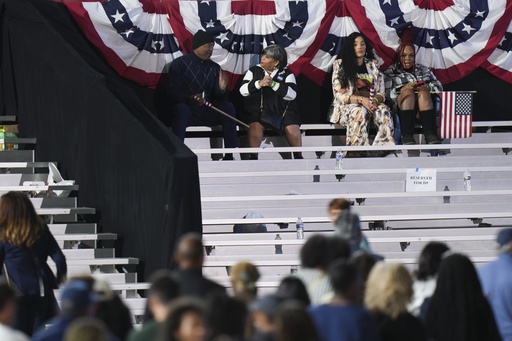WASHINGTON — Once seen as a potential beacon of hope for the Democratic Party amidst Joe Biden’s faltering reelection efforts, Kamala Harris and her team are grappling with a significant setback following a disappointing reception from voters in this year’s presidential race.
Harris is lagging behind Donald Trump in all pivotal battleground states, a candidate she has characterized as a substantial threat to the nation’s core democratic institutions. Trump is positioned to capture the popular vote for the first time across his three attempts for the presidency, doing so despite facing two impeachments, felony convictions, and his efforts to overturn the results of the previous election.
Although Harris has not officially conceded her defeat, she is scheduled to deliver her concession address at 4 p.m. on Wednesday at Howard University, her alma mater. This announcement comes after her supporters were left disheartened Tuesday night, as they witnessed Trump’s lead grow in key states and were ultimately sent home well past midnight. Details regarding any plans for a dialogue with Trump have not been shared by Harris’s campaign.
This outcome is particularly stinging for Harris, given her position as the sitting vice president, which includes the duty of overseeing the ceremonial certification of the election results in Congress. This role parallels that of Mike Pence four years ago, during which Trump urged his followers to march on the Capitol. Despite the violence of that day being framed by many as a stark warning against Trump’s influence on democracy, it surprisingly did not deter voters from supporting him again.
Harris ascended to the Democratic candidacy following Biden’s struggles to assure voters he could effectively serve as president into his 86th year. After a poor performance in a June 27 debate against Trump, Biden announced his withdrawal from the race on July 21, subsequently endorsing Harris, who quickly rallied the Democratic Party behind her candidacy.
From the onset, Harris faced formidable challenges; she took over Biden’s campaign with only 107 days remaining in the election and was met with a restless electorate hungry for change. While she promoted “a new way forward,” she found it difficult to stand out from the unpopular incumbent president. Furthermore, she had limited opportunities to familiarize herself with skeptical voters who had not previously supported her in any primary elections.
As Democrats begin to navigate the aftermath of a second Trump administration, the future role of Harris within the party remains uncertain.


